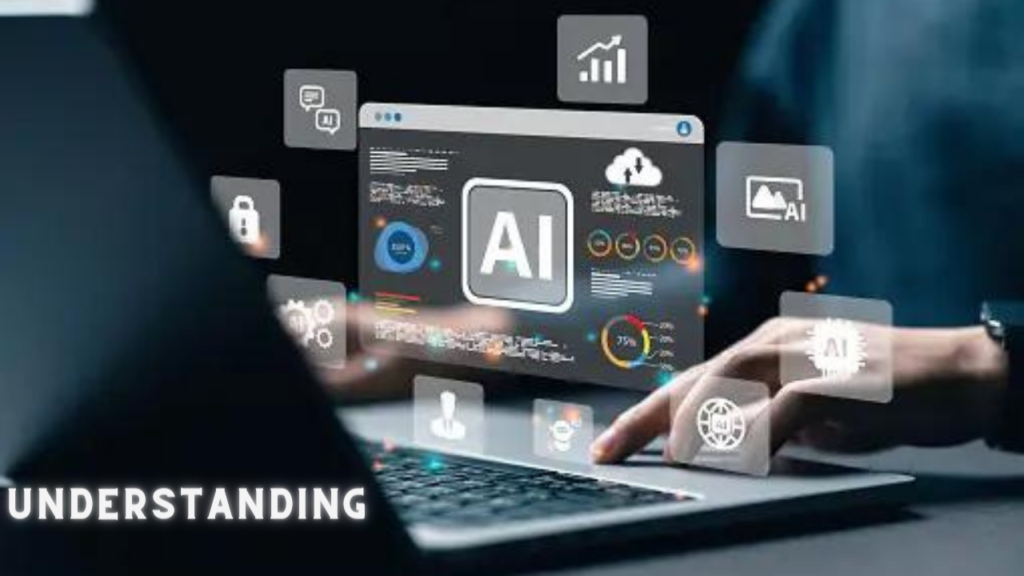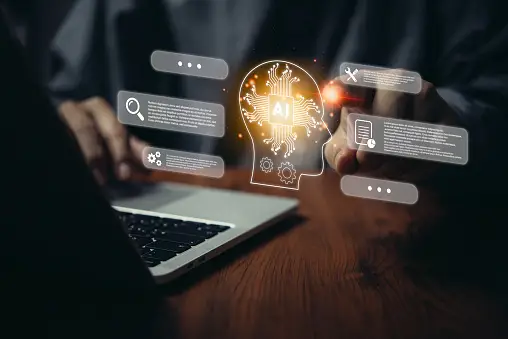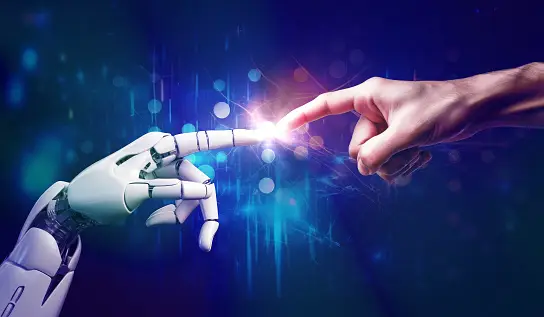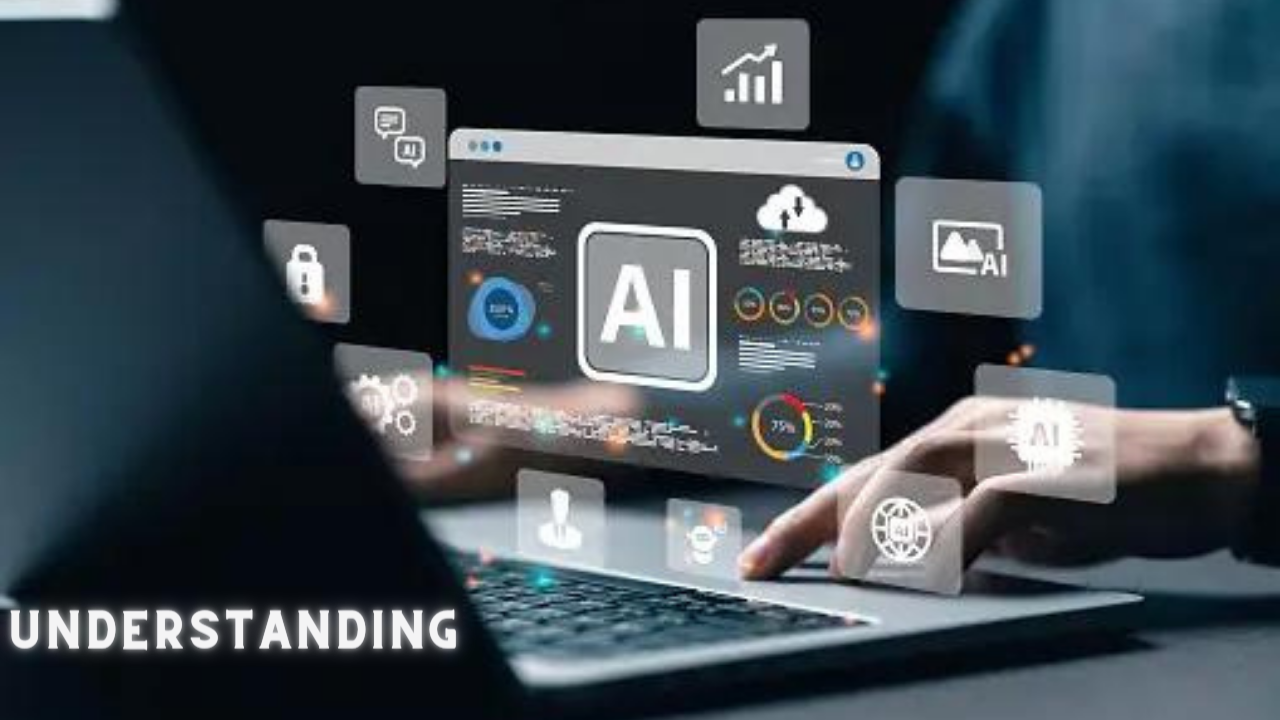In today’s rapidly evolving technological landscape, one term seems to be on everyone’s lips: Artificial Intelligence (AI). Consequently, AI has become a cornerstone of innovation, driving advancements across various sectors and reshaping the way we interact with technology.
Understanding Artificial Intelligence

AI aims to make machines think and behave like humans. This involves programming algorithms and systems to process information, recognize patterns, and draw conclusions from data, much like our own brains do. These AI systems can handle massive volumes of data, far more than a human could process, and they can do so with remarkable speed and accuracy.
For instance, imagine a program designed to recognize faces in photographs. Through AI, this program can be trained on vast datasets of images, learning to identify common features and patterns associated with human faces. Once trained, the AI system can then analyze new images and accurately identify faces within them, often with greater speed and accuracy than a human could achieve.
Similarly, AI algorithms can be applied to various other tasks, such as predicting consumer behavior, optimizing logistics routes, or diagnosing medical conditions from diagnostic images. By analyzing large datasets and identifying meaningful patterns, AI systems can make decisions and recommendations without direct human intervention.
Moreover, AI represents a significant advancement in technology, enabling machines to perform tasks that were once exclusive to human intelligence. Additionally, as AI continues to evolve, its potential applications and impact on society are boundless, with implications spanning industries, economies, and everyday life.
Artificial Intelligence in Everyday Life

Artificial intelligence has seamlessly woven itself into numerous facets of our everyday existence. From the tailored suggestions we encounter on streaming services to the virtual aides aiding us in managing our daily routines, AI has pervaded every corner of our lives. Additionally, AI-driven technologies power voice recognition systems, autonomous vehicles, and even medical diagnostic tools, revolutionizing industries and enhancing efficiency. Overall, the pervasive presence of AI underscores its transformative impact on society.
Artificial Intelligence Transforming Industries
The influence of AI on industries is immense and cannot be exaggerated. In manufacturing, AI-driven robots streamline production processes, leading to increased productivity and reduced costs. Moreover, in healthcare, AI algorithms analyze medical images with a level of accuracy surpassing human capabilities, aiding in early disease detection and treatment planning. Additionally, financial institutions utilize AI for fraud detection, risk assessment, and algorithmic trading, optimizing operations and mitigating risks. As a result, AI is revolutionizing various sectors by enhancing efficiency and driving innovation.
Ethical Considerations

Despite its numerous benefits, the widespread adoption of AI raises ethical concerns that cannot be ignored. Firstly, privacy issues arise from the vast amounts of personal data collected and analyzed by AI systems. Moreover, there are concerns about job displacement as AI automates tasks traditionally performed by humans. Addressing these ethical dilemmas requires careful regulation and thoughtful consideration of the societal implications of AI.
The Future of AI

As AI continues to evolve, the possibilities are limitless. Advancements in machine learning, natural language processing, and robotics are pushing the boundaries of what AI can achieve. From personalized healthcare treatments to autonomous transportation systems, the future promises a world where AI enhances every aspect of human life.
Evolution of AI
The journey of AI has been marked by remarkable advancements in machine learning, natural language processing, robotics, and other related fields. From rule-based systems to sophisticated neural networks, AI has evolved to surpass human capabilities in various tasks, ranging from image recognition to complex decision-making.
Enhanced Human-Machine Collaboration
In the future, AI will not replace humans but augment their capabilities, leading to enhanced collaboration between humans and machines. AI-powered systems will assist humans in performing tasks more efficiently, providing valuable insights, automating repetitive processes, and enabling deeper analysis of complex datasets. This symbiotic relationship between humans and AI will unlock new levels of productivity and creativity across industries.
Personalized Experiences
AI will revolutionize the way we interact with technology, offering personalized experiences tailored to individual preferences and needs. From personalized recommendations in entertainment and e-commerce to adaptive learning experiences in education, AI-driven systems will create seamless and intuitive user interfaces that anticipate and fulfill users’ requirements in real-time.
Healthcare Transformation
In healthcare, AI will play a pivotal role in revolutionizing diagnosis, treatment, and patient care. AI algorithms will analyze medical data, including imaging scans, genetic information, and patient records, to provide more accurate diagnoses, personalized treatment plans, and predictive insights into disease progression. Additionally, AI-powered robotics will assist surgeons in performing minimally invasive procedures with precision and efficiency.
Autonomous Systems
Autonomous systems powered by AI will redefine transportation, logistics, and manufacturing. Self-driving vehicles will revolutionize mobility, reducing traffic congestion, accidents, and emissions while improving transportation accessibility for all. AI-driven robots will automate repetitive tasks in factories, warehouses, and supply chains, leading to increased efficiency, productivity, and cost savings.
Ethical Considerations
As AI continues to advance, addressing ethical considerations becomes increasingly crucial. Ensuring transparency, fairness, accountability, and privacy in AI systems is essential to building trust and mitigating potential risks. Ethical frameworks, regulations, and guidelines must be established to govern the development, deployment, and use of AI technologies responsibly.

Conclusion
Artificial Intelligence is not just a buzzword; it’s a transformative force reshaping our world. From revolutionizing industries to augmenting everyday experiences, AI’s impact is undeniable. However, as we embrace the opportunities AI presents, we must also address the ethical challenges and ensure that its benefits are accessible to all. As we stand on the brink of a new era defined by AI, one thing is certain: the future is here, and Artificial Intelligence is leading the way.
In conclusion, Artificial Intelligence is shaping our world in profound ways, revolutionizing industries, enhancing efficiency, and augmenting human capabilities. As we navigate this AI-driven future, it’s essential to consider the ethical implications and ensure that AI benefits society as a whole. With careful regulation and thoughtful innovation, we can harness the power of AI to create a better, more inclusive world for generations to come.

